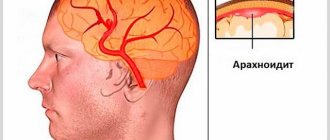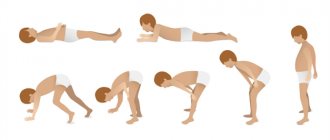If you find it difficult to answer the question when was the last time you weren’t worried about anything, if thoughts about an insidious illness creep into your head every now and then, and the wise minnow from Saltykov-Shchedrin’s fairy tale seems like a close-minded comrade, you are a psychasthenic. And this is not an offensive curse, but a type of character accentuation.
The frightening names schizoid, cycloid and hysteroid do not hide the verdict of a psychiatrist, but only the most common recognizable personality traits. This time we’ll talk about psychasthenics and how they can make their life easier.
Psychasthenic personality - what is it like?
It is quite difficult to define this condition, since it has a lot of distinctive features.
The main ones:
- diffidence;
- suspiciousness;
- presence of obsessive fears;
- pedantry;
- responsibility;
- isolation.
Such a person worries about everything and everyone: for himself, loved ones, acquaintances. Sometimes experiences involve situations that can only happen hypothetically, but are unlikely to happen in reality.
This type is not able to withstand serious psychological stress, for this reason the nervous system of such people is called weak. Parents can detect the first “bells” in the elementary grades of school, when an additional burden of responsibility begins to put pressure on the child - he must go to school, study diligently, and complete assignments.
By the way, psychasthenics study diligently - they methodically follow all the recommendations of teachers, but their results are not outstanding. The same applies to those who are already working. The motivation for the actions of a psychasthenic personality is the absence of punishment for their actions and the exclusion of controversial situations.
A little more about responsibility - previously these children were trusted to look after their younger brothers and sisters, which they did an excellent job with.
A separate topic for discussion is superstitions and rituals. Both help them cope with anxiety and fears. Sometimes they are understandable only to a psychasthenic. For example, a person comes up with a ritual for himself, without which the exam will not be passed. This could be a special route to an educational institution or the obligatory presence of some kind of amulet on your hand (in your bag). An individual may suspect that such actions seem very strange to others, but he is unable to refuse them.
Psychasthenics are conservatives; they find it difficult to change; they take a long time to get used to new things. The main response to change is resistance.
They are hardly noticeable in society. In adolescence, when all other children show a tendency towards independence, opposing themselves to their parents and the whole world, children of a psychasthenic type of character, on the contrary, become increasingly attached to one of the family members - to their mother or father.
Due to their isolation, such people rarely allow anyone to approach them - it is very difficult to become their friend, first they will study you from head to toe.
How to communicate with such people? There is no need to put pressure on them, you need to be calm and not insist on anything too much.
Despite the stormy internal “activity” - suppression of strong emotions, experiences, analysis of reality and options for the development of events - they are, in the opinion of others, outwardly calm. They are sedentary and do not have a particular passion for sports. They prefer neutral colors in clothes, for example, gray.
In their sexual life they are quite mediocre, although they are afraid of making a mistake during sexual intercourse. Teenagers experience intense masturbation.
Childhood and youth[ | ]
Psychasthenic traits are usually detected by the beginning of the school period.[3] Already in early childhood, psychasthenics are more anxious than other children; for example, they can become very worried if their parents are late from work. As a defense against numerous anxieties, psychasthenics may experience symbolic rituals (tapping, omens, counting objects, etc.) and amulets.[1]
Studying in the lower grades can be difficult due to relatively weak mechanical memory. Psychasthenic children constantly recheck themselves, and therefore are slow. When speaking in public, they acutely evaluate the reactions of others, which can lead to fear of speaking. Psychasthenics strive for order, but often cannot achieve it, which leads to irritation. Psychasthenics worry about their academic performance. In high school and in universities, due to developed analytical and often creative abilities, studying, despite the slowness, is easier for psychasthenics. They are able to figure out everything with their own minds, understand the material well, penetrate into the essence, and logically generalize what they have learned. The talent for this often continues to develop into adulthood.[1]
Due to the fear of responsibility and risk, psychasthenics are reluctant to participate in school social work. They get along with their friends slowly, selecting those who are not able to hurt their vulnerability. Motor clumsiness leads to poor results in physical education and labor lessons. They don’t know how to fight and are afraid, which is why they avoid conflicts and give in. Experience problems communicating with the opposite sex.[1]
However, the child does not yet have the integrity of an adult character and at times he may behave uncharacteristically for a psychasthenic. His character develops into a system in his youth in connection with emerging new challenges, learning more and more about the dangers of the world, and reflection intensifies against the background of fading sensuality. All this leads to increased indecision, shyness, and communication difficulties. In his youth, a psychasthenic often has a particularly strong fear of death, hypochondria, and horror of the boundlessness of the universe. A young psychasthenic may rebel against his parents if they impose a false program on him.[1]
It is very important that parents provide psychological support to a psychasthenic child, teach him how to act, and how to approach life more calmly. Don't overload them with responsibility. You cannot harshly scold such children - this will lead to fear of failure. They need kind encouragement and affection. A psychasthenic child tries to meet the expectations of his parents. Parental love and respect are the best psychoprophylaxis for the development of psychasthenia.[1] Overprotective upbringing, especially by anxious grandparents, is very harmful.[3]
Causes of the condition
Most often, psychasthenic individuals grow up in families where the parents have a similar type of accentuation. Children adopt behavioral characteristics and/or inherit them.
The reasons for constantly being in this state are:
- stress is one of the problems of a resident of a modern metropolis - in order to survive, he is forced to work a lot and hard, this “shocks” our central nervous system;
- nervous and physical overstrain - it is caused by living at the limit of one’s capabilities, when there is no room left for rest and relaxation;
- lack of sleep and lack of sleep - normal functioning of the nervous system is ensured thanks to quality rest, if it is absent, then pathological changes occur in the body;
- lack of physical activity - this factor is also typical for residents of modern megacities;
- lack of vitamins and improper nutritional system, eating on the go, fast food, an abundance of fatty and fried foods, sweets.
- bad habits – one of the most powerful effects alcohol and drugs have on the nervous system, “giving” a person various mental illnesses;
- diseases of the nervous and endocrine system;
- problematic environmental situation - it not only weakens health, but is also a factor that increases the risk of nerve diseases.
Psychasthenia: symptoms and treatment
All inhabitants of planet Earth experience stress every day for a variety of reasons. Scientists have proven that constant worry is extremely harmful to the body as a whole. It is also worth noting that all people are completely different, or rather their psyches.
For some it is strong, such individuals usually can withstand the frantic pace of life without any problems, but for others it is weak, such people most often cannot be full participants in society.
This article will tell you information about this type of disease called psychasthenia
, and how dangerous it is for physical and mental health.
Today, in combination with many mental and psychological problems, many methods for curing certain diseases, as well as specialists who carry them out, have appeared.
Even if you don’t have money, but need psychotherapeutic help, there are special medical centers that are ready to help for free.
In such situations, the most important thing is not to give up and not let depression take over.
What is psychasthenia?
Psychasthenia (from the ancient Greek ψυχή
- soul and
ἀσθένεια
- powerlessness, weakness) is a type of mental disorder in which the patient has weak mental qualities.
Basically, such people consider themselves completely powerless; they try to be as inconspicuous as possible so that others do not pay attention to their shortcomings.
In fact, such an illness belongs to the class of neurasthenia, characterized not only by suppressed self-esteem and a feeling of one’s own uselessness, but also by the habit of exaggerating the reality, making it worse for oneself.
We can say that a person suffering from this disease tries to be as inconspicuous as possible, avoids society and is afraid of being affected. The literal translation of psychasthenia from ancient Greek is a person with a weak soul.
It is these people who can be called soft, they are somewhat naive and easily influenced. Unfortunately, in the modern world these qualities can rarely be called good; most often they simply create inconvenience.
Another feature characteristic of psychasthenics is their constant modeling of possible situations and an endless search for solutions so that they can please everyone. Unfortunately, the eternal search for the “right” solutions significantly affects the person himself; he becomes insecure and withdrawn.
The fact that the patient constantly has to choose also affects his determination, because when choosing options, a large number of doubts arise that do not allow him to decide on his own.
Even completely healthy people are often subject to doubts, but what to do if there are many times more of these doubts?
Causes of psychasthenia
According to scientific research, the causes of psychasthenia can be varied. Each of them influences a person’s personality in one way or another.
The most common cause of psychasthenia is moral and physical trauma that occurred to a person in childhood.
This is because it is in childhood that the child’s psyche becomes stronger and easily succumbs to external stimuli. If proper therapy is not carried out after the incident, the consequences can be dire.
It is certainly good if a child is able to overcome his fear on his own, but more often than not, help is required.
Another reason may be that the child was raised in conditions where his will was constantly suppressed and he could not decide anything on his own. Then a person does not develop the independence that will allow him to make important or not so important decisions throughout his life without problems.
Also, the cause of psychasthenia may be that a person is constantly experiencing nervous tension. Unfortunately, sooner or later the nervous system cannot stand it and a nervous breakdown occurs.
Then the protective functions of the body are activated, when a person no longer wants to decide anything on his own, it is easier for him when everything is done for him, taking on the burden of responsibility.
So to speak, this disease can make a person’s character completely opposite.
Diagnostics
the occurrence of
psychasthenia
is more than important, this will allow you to accurately determine the appropriate type of treatment and allow you to achieve success.
Symptoms of psychasthenia
Psychasthenia is a disease of uncertainty, which is why the patient develops a pathological fear of the new and unknown.
Psychasthenia is characterized by such features as: suspiciousness, irritability, vulnerability, shyness, anxiety, timidity, indecisiveness, lack of initiative and a pessimistic attitude.
All these signs are expressed in symptoms of psychasthenia
, or rather in the patient’s behavior. It is very important to stop this disease, because a person can drive himself crazy because he is tormented by constant doubts.
Detailed symptoms of psychasthenia
:
- pedantry;
- numerous doubts;
- slowness in action;
- strict control over the actions taken;
- rigidity of thinking;
- torment during self-analysis;
- reasoning that is not directly related to reality;
- strong receptivity to the information received;
- feeling of inadequacy of life;
- irritability;
- susceptibility to influence;
- fast fatiguability;
- moral;
- difficulties in communication;
- suspiciousness;
- difficulty making decisions;
- punctuality;
- hard work;
- striving for perfection in everything.
Very often, smart and educated people, that is, of a thinking mindset, suffer from psychasthenia. It is still quite difficult to understand why intellectuals are susceptible to this disease more often than ordinary people, but the fact remains.
How do psychasthenics think?
The thinking of psychasthenics can amaze with its logic.
Due to the fact that they are highly susceptible to doubt, they carefully approach the solution of this or that problem, necessarily compare all the pros and cons, put in an incredible amount of effort, but still cannot solve it on their own. It would seem that the logical answer is obvious, but the patient’s internal uncertainty does not allow him to see the answer that lies on the surface.
It’s a shame that such reflections and conclusions are almost never used; psychasthenics, although smart and educated people, are so afraid of criticism from society that they almost never speak in public. Such people very rarely become public figures, politicians and celebrities, because they believe that they will never be worthy of this.
Also, you will never expect psychasthenics to act rashly. Due to the nature of the disease, they always think of their actions in advance. All their actions are guaranteed to be subject to logic. If everything does not happen “according to plan,” then they try to become as inconspicuous as possible so as not to do something that they will greatly regret later.
Moreover, psychasthenics always strive to develop, because they always evaluate themselves lower than they really are. Therefore, they try to become better, but this does not give much effect, because as soon as they have achieved their goal, they again find that ideal against which they consider themselves completely worthless. This can continue throughout the patient's life, thereby worsening his condition.
Examples of psychasthenia
Examples of manifestations of psychasthenia can be found quite often, because the main feature of this disease is the presence of many doubts.
But we should also not forget that an ordinary person also has doubts, but not in such quantities and not so often.
Below we would like to provide examples of psychasthenia, which are like a test
will allow you to determine the presence or absence
of psychasthenia
in yourself, your family or friends.
Example No. 1 Before us is an ordinary third-year student S., for three years he studied with maximum scores, always answered questions correctly and ideally completed the tasks assigned to him.
But few people know that before each practical lesson he is on the verge of fainting, because he is worried that he will not cope with the question or task, which is why he will be despised in the group. Only student S.’s closest and dearest know about this peculiarity, and thanks to the fact that he arrives exactly at the start time of class, no one notices his problem.
S. Understands that his worries are groundless, because he has carefully learned all the material, but panic attacks before speaking in public do not stop.
Example No. 2 Girl A., who has been working at a prestigious job for more than 10 years, occupies a high leadership position. Previously, she had no problems with strong doubts about her profession, but after experiencing a nervous breakdown, problems began. A.
begins to understand that her chosen profession does not bring her pleasure at all, but it is there that she has a stable, good income. Thoughts about the wrong choice visit her chaotically, so she is not able to accurately decide anything for herself.
Due to the fact that the girl is constantly tormented by doubts, the quality of her work, relationships with her family and health have deteriorated. In order to overcome this condition, she turned to a specialist who could help her.
Example No. 3 Teenage girl N. is very dependent on public opinion. Because of this, she tries to behave like everyone else, dress like everyone else and spend time in the same places. She is trying with all her might to live up to the fashionable ideal that society has put forward.
She is terribly afraid of criticism and dissatisfaction not only from people from her circle of acquaintances, but also from ordinary people she meets. Due to the fact that she constantly hides herself, she does not have such close friends who would know her true nature.
She communicates closely only with her parents, who fully understand and support her in her desire to overcome psychasthenia.
Example No. 4 Young man V. has been suffering from rhinitis for a week, but is unable to see a specialist at a medical institution. He also lives alone and is not used to treating this on his own, because previously in similar cases there was someone next to him who helped him. He was treated with the methods that he knew, and also guaranteed recovery.
But he couldn’t shake the feeling of anxiety that the illness was more serious than it actually was. Therefore, he decided to look for answers on the World Wide Web, and having learned the necessary and unnecessary information, he began to think too much and subconsciously convince himself that everything was bad.
This all happened due to psychasthenia, which did not allow a person to think rationally.
These are just some of the few examples of psychasthenia, and there is no doubt that this illness can significantly complicate a person’s life. This disease is especially difficult to overcome and develops at an accelerated pace when a person is lonely, because there is no moral support, which often works better than the most expensive medicines.
Classification of psychasthenia
There is no official division of psychasthenia, but two pathologies – anxious (avoidant) and anancastic (obsessive-compulsive) personality disorder – are considered to be its subtypes.
With anancastic personality disorder, people are prone to constantly having obsessive thoughts (for example, wondering if they turned off electrical appliances, closed the door, took everything they needed, etc.).
Such individuals are prone to various phobias, the occurrence of which can occur for absolutely any reason.
Also, patients with anancastic personality disorder are usually very friendly and loyal with people close to them, but when in contact with strangers they behave completely without emotion.
People who have an anxious personality disorder are characterized by a fear of any criticism in their direction.
Patients with this type of psychasthenia need to be constantly supported and encouraged, given useful advice and carefully guided towards the goal.
In no case should you criticize or accuse them of something; they already do it all the time themselves. They are also the most susceptible to depression, so support from family and friends is always needed.
Treatment of psychasthenia
Unfortunately, psychasthenia
impossible to cure.
This disease accompanies a person throughout his life, but with proper treatment
it will not cause inconvenience. It is also important not to panic, try to think sensibly and not focus on the disease.
Treatment methods can be varied, usually it all depends on which specialist you contact. Also, do not forget that you can alleviate the symptoms of psychasthenia yourself or with the help of family and friends.
All therapies are united by approximately the same principles of their composition.
It is necessary to devote more time to rest and properly plan sleep time, and also not to abuse physical and mental stress.
A good option would be to sign up for a gym or a massage; physical activity combined with good relaxation will help relieve accumulated stress and prevent the emergence of new ones.
Don't forget about self-motivation. If the patient subconsciously self-destructs himself, but does not want to continue this, then it is necessary to support him in his desire to be treated. Indeed, in the entire treatment process, it is important to distract him from destructive thoughts, teach him that life should be enjoyed, and be supported in every possible way.
If you use medications in treatment, you can use not only official drugs (amitriplitin, tofranil, clomipramine), but also natural herbal medicines (preparations containing valerian, motherwort, chamomile, etc.). But in no case should we forget to carefully follow the doctor’s recommendations and medication instructions.
In case of any illness, a person should never give up, because life was given to each of us for a reason. If you are looking for how to get rid of psychasthenia,
then you are sure to find a solution. Never forget about your health and the health of your family and friends!
Source: https://7psihozov.ru/psixopatiya/psixasteniya-simptomy-i-lechenie.html
Consequences
Under the influence of the above factors, the condition may worsen. One of the possible consequences is psychasthenic psychopathy (anancastic disorder). Such people are suspicious; they are constantly in the process of “internal work” - analysis, thinking about situations (sometimes fictitious). They get down to business, being confident in advance of their failure, although the end result in most cases is above average. Their pedantry, anxiety and susceptibility to phobias are too exaggerated. These patients are often diagnosed with obsessive-compulsive disorder.
Another scenario is the appearance of an anxiety disorder. Such a person is very impressionable and unsure of himself. Pedantry is manifested in building a whole world of rules and prohibitions around oneself. Constantly check these settings. Any (even minor) pain in the body can become a reason to “inflate” a big problem. They avoid contact with people due to fear of ridicule and timidity.
Psychasthenia - causes and consequences
It is worth remembering that psychasthenia is not the cause of further mental disorders, but only a consequence of the previous ones. The causes of the disorder can be mental damage, excessive fatigue or various types of poisoning, including alcohol and drugs. As a rule, psychasthenia is diagnosed in people who are initially prone to suspiciousness and distrust.
Most often, psychasthenia manifests itself in the form of phobias and anxiety neurosis, which, in fact, are its varieties. Anxiety neurosis manifests itself in the fact that the patient experiences causeless anxiety. Moreover, the senselessness of this concern, as a rule, is obvious to the patient himself. Anxiety can sometimes alternate with prolonged attacks of panic.
Psychasthenia due to nervousness
Often, psychasthenia develops on the basis of constant and severe stress - for example, during the period of divorce or division of property, before conscription into the army, a difficult exam or imminent dismissal from work. In addition, psychasthenia may be accompanied by a physical deterioration in well-being - increased heart rate, chest pain, and upset stomach.
Treatment
Therapy for emerging disorders includes:
- reduction of risk factors - inclusion of normal nutrition, healthy sleep, reduction of nervous stress;
- taking vitamins;
- sedatives;
- hypnotic;
- antidepressants;
- neuroleptics.
An important element of treatment is psychotherapy. For psychasthenia, the method will reduce the likelihood of more serious diseases of the nervous system. Regular conversations with the doctor will relieve the patient of unnecessary anxiety and worry.
Psychasthenia: how this disease manifests itself and is treated – Suppressed
All inhabitants of planet Earth experience stress every day for a variety of reasons. Scientists have proven that constant worry is extremely harmful to the body as a whole. It is also worth noting that all people are completely different, or rather their psyches.
For some it is strong, such individuals usually can withstand the frantic pace of life without any problems, but for others it is weak, such people most often cannot be full participants in society.
This article will tell you information about this type of disease called psychasthenia
, and how dangerous it is for physical and mental health.
Today, in combination with many mental and psychological problems, many methods for curing certain diseases, as well as specialists who carry them out, have appeared.
Even if you don’t have money, but need psychotherapeutic help, there are special medical centers that are ready to help for free.
In such situations, the most important thing is not to give up and not let depression take over.











